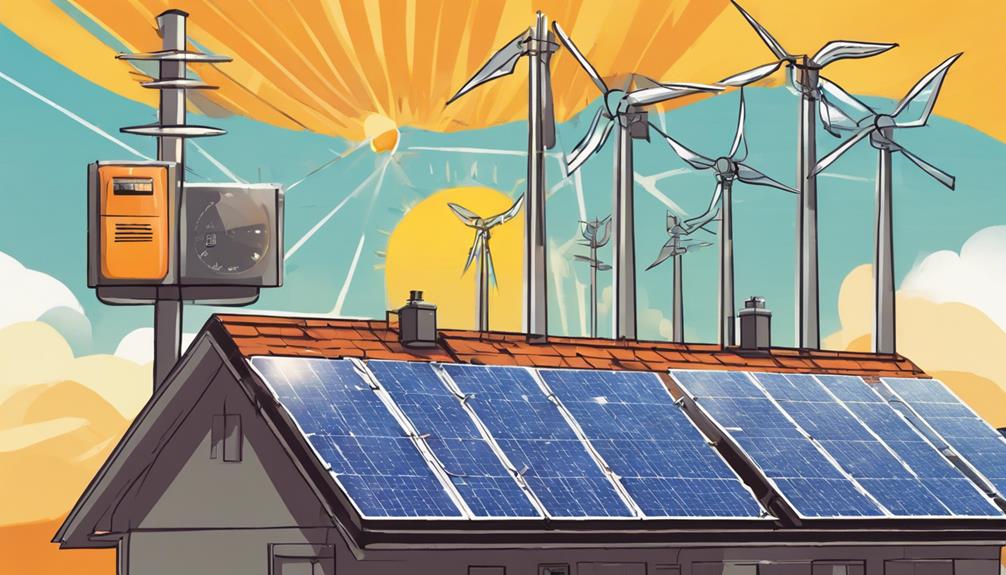As renewable energy sources become more popular, many homeowners are considering the installation of solar panels. While the environmental benefits of solar energy are well-documented, concerns about how these installations might affect the integrity of roofs often arise. This article aims to clarify whether solar panels can damage roofs, addressing common concerns and potential risks while providing insights into proper installation practices.
Understanding Solar Panels and Roof Integrity
Solar panels are designed to convert sunlight into electricity, offering an eco-friendly alternative to traditional energy sources. When installed correctly, solar panels can be an efficient and sustainable energy solution. However, the installation process can raise questions about the impact on roof integrity, especially concerning leaks and structural stability.
It’s important to note that solar panels themselves are not inherently damaging to roofs. However, the way they are installed plays a crucial role in determining whether any damage occurs. Understanding how solar panels interact with roofing materials and structures is essential for homeowners considering this investment.
Common Concerns About Solar Panel Installation
Homeowners often express concerns that installing solar panels may lead to roof leaks, structural damage, or reduced lifespan of roofing materials. These worries stem from the modifications required during installation, such as drilling holes for mounting brackets.
Another common apprehension is the potential for increased weight on the roof. Solar panels, combined with mounting hardware, can add a significant amount of weight; thus, roofs that are not structurally sound may be at risk. It’s essential for homeowners to assess their specific roofing situation before deciding on solar panel installation.
The Impact of Solar Panels on Roof Structures
When installed properly, solar panels can have a minimal impact on roof structures. In many cases, solar panels are mounted to roofs using brackets and rails, which distribute the weight evenly and reduce concentrated loads on specific areas. This thoughtful design helps to prolong the life of the roof and maintain its integrity.
However, if a roof has existing damage or is nearing the end of its lifespan, the weight of solar panels might exacerbate underlying issues. Homeowners should consider both the age and condition of their roofs before proceeding with solar panel installation.
Potential Risks of Installing Solar Panels
While many installations are executed without incident, there are potential risks associated with solar panels. One of the primary concerns involves water infiltration, which can occur if the installation is not conducted correctly. Improper sealing around mounting points can lead to leaks, causing damage to the roof and potentially leading to costly repairs.
Additionally, if a roof is not properly supported to handle the added weight of solar panels, this can lead to structural issues over time. Homeowners should ensure that their roofing systems are compatible with solar panel installation and that they are working with reputable installers who follow best practices.
How Solar Panel Installation Is Typically Conducted
The installation of solar panels generally involves several steps, beginning with an assessment of the roof’s structure and condition. A qualified installer will evaluate the roof to ensure it can support the solar panel system, checking for any pre-existing damage and overall integrity.
Once the assessment is complete, the installation process typically involves securing brackets to the roof, which are then used to mount the solar panels. High-quality sealants are used to prevent water infiltration, and professional installers should follow manufacturer guidelines to ensure the roof remains intact.
Assessing Roof Compatibility with Solar Panels
Before proceeding with solar panel installation, it is imperative for homeowners to assess their roofs for compatibility. Factors such as the age of the roof, material type, slope, and overall condition are all crucial in determining whether it can accommodate solar panels without risk of damage.
In some cases, it may be beneficial to conduct repairs or even a complete roof replacement before installing solar panels. This proactive approach can prevent future complications and ensure that the roof can adequately support the new system.
Maintenance Considerations for Roofs with Solar Panels
Regular maintenance is vital for both the solar panel system and the roof underneath. Homeowners should ensure that both the roof and the panels are clean and free of debris, as this can impact the efficiency of the solar energy system.
Additionally, roof inspections should be conducted periodically, particularly after extreme weather events. This maintenance ensures that any potential issues, such as leaks or structural concerns, can be identified and addressed promptly before they escalate into more significant problems.
Real Experiences: Homeowners’ Feedback on Damage
Feedback from homeowners who have installed solar panels is varied. Many report positive experiences, noting that their roofs remain in excellent condition with no signs of damage. They often highlight the importance of choosing a reputable installer who adheres to best practices during installation.
Conversely, some homeowners have shared negative experiences, where improper installation led to leaks and subsequent damage. These cases underscore the importance of thorough research and selection of skilled installers to mitigate the risks associated with solar panel installation.
Preventive Measures to Avoid Roof Damage
To avoid damage during solar panel installation, homeowners can take several preventive measures. First, it is crucial to hire a licensed and experienced solar installer who understands local building codes and regulations. Ensuring that the installer is qualified can significantly reduce the risk of improper installation.
Additionally, homeowners can conduct a thorough inspection of their roofs before installation, addressing any issues that could lead to complications in the future. Regular maintenance following installation can also help prevent potential damage from occurring down the line.
In conclusion, solar panels do not inherently damage roofs when installed correctly. However, potential risks exist, particularly if the installation process is not conducted by qualified professionals or if the roof is not suitable for mounting. Homeowners should thoroughly assess their roofing conditions, consult with experienced installers, and maintain their roofs to ensure the longevity of both the roof and the solar panel system. By taking these precautions, homeowners can make informed decisions about solar energy while safeguarding their property.
